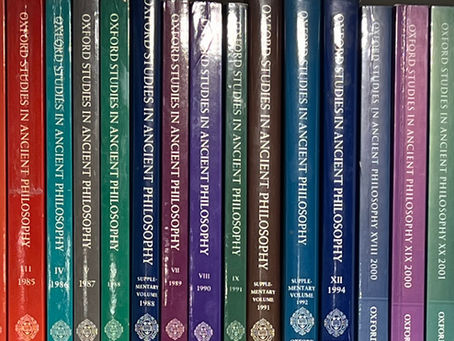top of page
All Posts


AI, AR, Fake Barns, and the Ethics of War
This post discusses AI-enhanced AR glasses and how these could be used in war. It addresses the epistemological problems for the soldiers and how they are ethically incapable of being responsible if they use such devices.
Douglas A. Shepardson
Oct 29, 202510 min read


Why I Love The Walking Dead, and Four More Post-Apocalyptic Comic Worlds to Explore
My favorite genre of fiction (a term that for me includes comic books, film, television, and videogames) explores brutal post-apocalyptic worlds, highlighting the characters who manage to survive them. My love of this genre has something to do with “grit,” a term with (at least) two senses, or meanings. The first, academic, sense of “grit” can be defined with psychologist Angela Duckworth’s gloss: grit is “perseverance in the pursuit of passion.” But the colloquial sense of
Douglas A. Shepardson
Nov 26, 20258 min read


“Thales at the Olive Press: How an Ancient Greek Philosopher Created an Ancient Analogue of the Modern Financial Call Option”
If we trust Aristotle’s account of the history of (metaphysical) philosophy, the first philosopher was Thales of Miletus . He’s the one who started “this sort” of philosophy, Aristotle says in the third chapter of his Metaphysics , not philosophy proper ( Metaphysics 983b20). Stereotyped as an absent-minded philosopher, Plato depicts him falling into a well while staring up at the stars ( Theaetetus 174a). Aristotle’s history doesn’t help over-turn the narrative of philos
Douglas A. Shepardson
Nov 6, 20256 min read


What Are the Top Ancient Philosophy Journals?
These are the top 15 journals in ancient philosophy. With links to the actual contents inside. Academic philosophy.
Douglas A. Shepardson
Sep 27, 20252 min read
bottom of page
